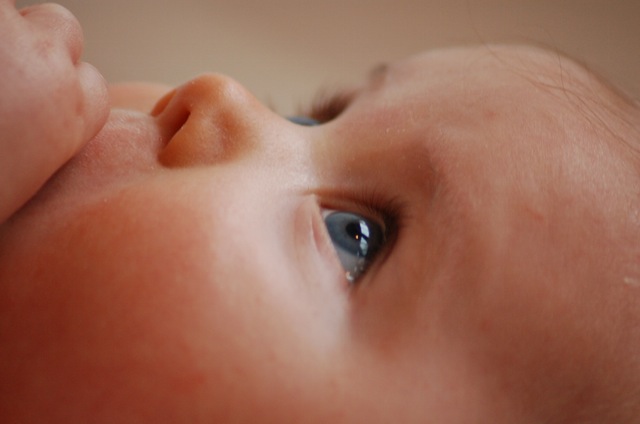
Women who give birth as teenagers typically have worse economic outcomes later in life. Statistics support this observation, and it is unlikely to come as a surprise to many. A natural leap from this is to conclude that having a baby as a teen causes young women to complete less schooling and have lower earnings. To help them do better, the thinking goes, we need to find ways to prevent teen births. If we could just make it easier to get contraception, teach teens to use it more effectively, or perhaps not to have sex in the first place, we could solve this problem. However, as logical as all of this sounds, it may not be the most effective solution. A better approach may be to intervene earlier in a young woman’s life, providing her with greater economic opportunity to succeed.
An alternative view of teen childbearing is that rather than being the cause of a young woman’s hardship, it is the culmination of lifelong influences that have reduced her potential economic outcomes. Low quality schools, poor role models, unstable homes, and many other environmental influences may place a young woman on a path towards a low-wage, low-employment future well before her teen years. Once on that path, having a baby may not be so economically harmful. In fact, some research suggests that it may even be beneficial, providing structure to a young woman’s life and someone to love. The teen birth then becomes just another step along a path that results in a low-wage, low-employment future, but it isn’t the cause of it.
Although neither perspective may be entirely right, one could conclude from previous research that the latter holds some weight. For instance, the best evidence available indicates that having a child in their teens does not have a large causal impact on a woman’s subsequent wages. In addition, sex education programs (traditional or abstinence only) do not have a tremendous track record of significantly reducing teen birth rates. Improving access to contraception does seem to reduce teen birth rates in a cost-effective manner, and should be supported, but its impact is not overwhelming. And in research I have conducted with Melissa Kearney, we have argued that the lack of economic opportunity plays an important role in the high rates of teen childbearing observed in the US, particularly in certain states.
These insights have important implications for public policy—along with access to contraception, it would be beneficial to promote a complementary approach that is designed to start girls on a better life course and keep them on it. We need to intervene earlier in their lives. Early childhood education programs, improvements to the educational system, mentoring programs, programs that increase access to higher education, etc., for girls from economically disadvantaged households can be helpful in this regard. They provide young women with the opportunity to succeed economically, encouraging them to avoid having a child in their teens. They attack the preconditions that lead to unprotected sexual activity that can result in a teen birth, not the behavior itself. Providing young women with these means to succeed can lead to fewer teen births than an approach focused only on the mechanics.
© Phillip B. Levine
See Phillip B. Levine, "Teenage childbearing and labor market implications for women," for more information.
Please note:
We recognize that IZA World of Labor articles may prompt discussion and possibly controversy. Opinion pieces, such as the one above, capture ideas and debates concisely, and anchor them with real-world examples. Opinions stated here do not necessarily reflect those of the IZA.